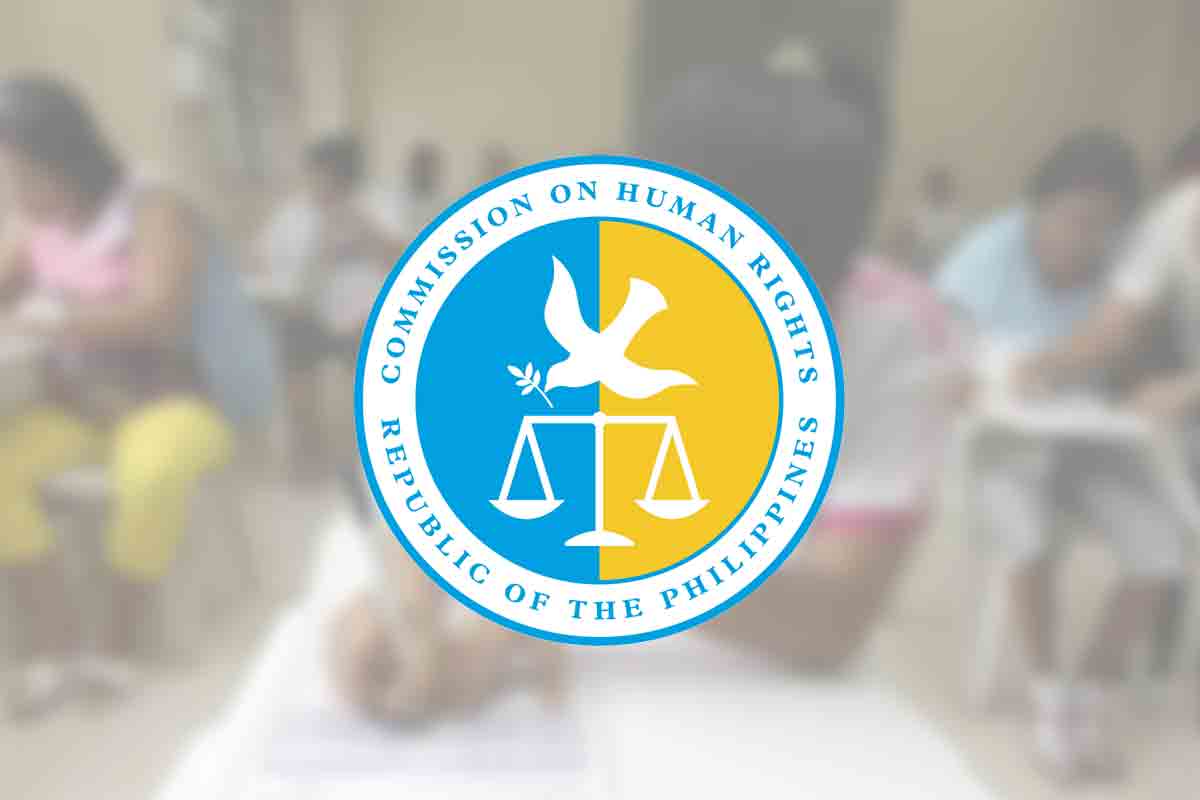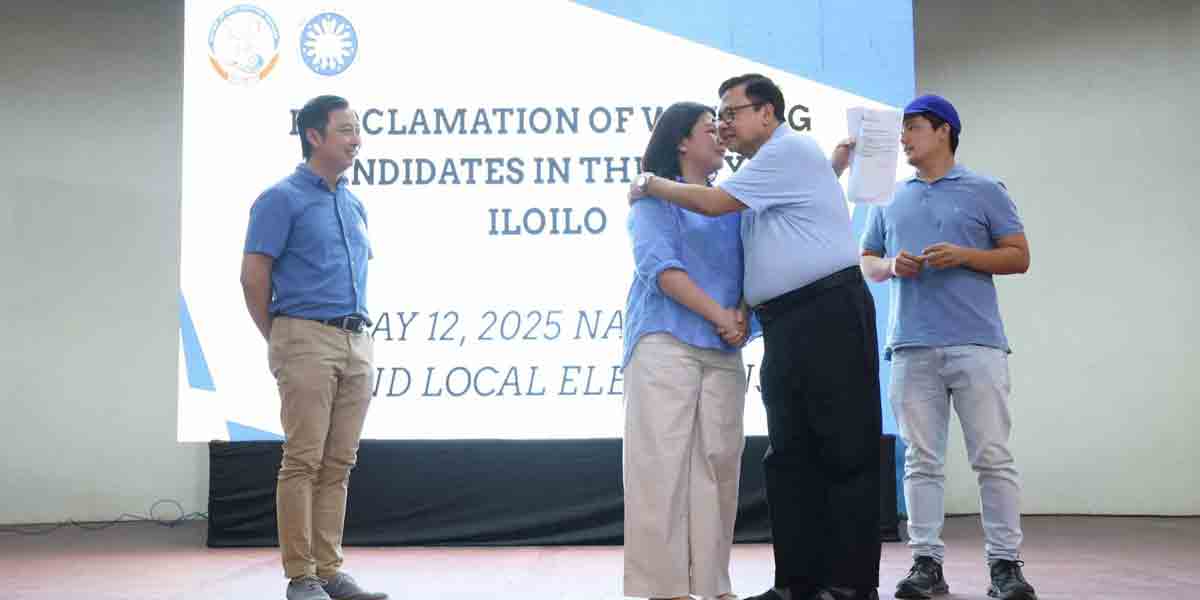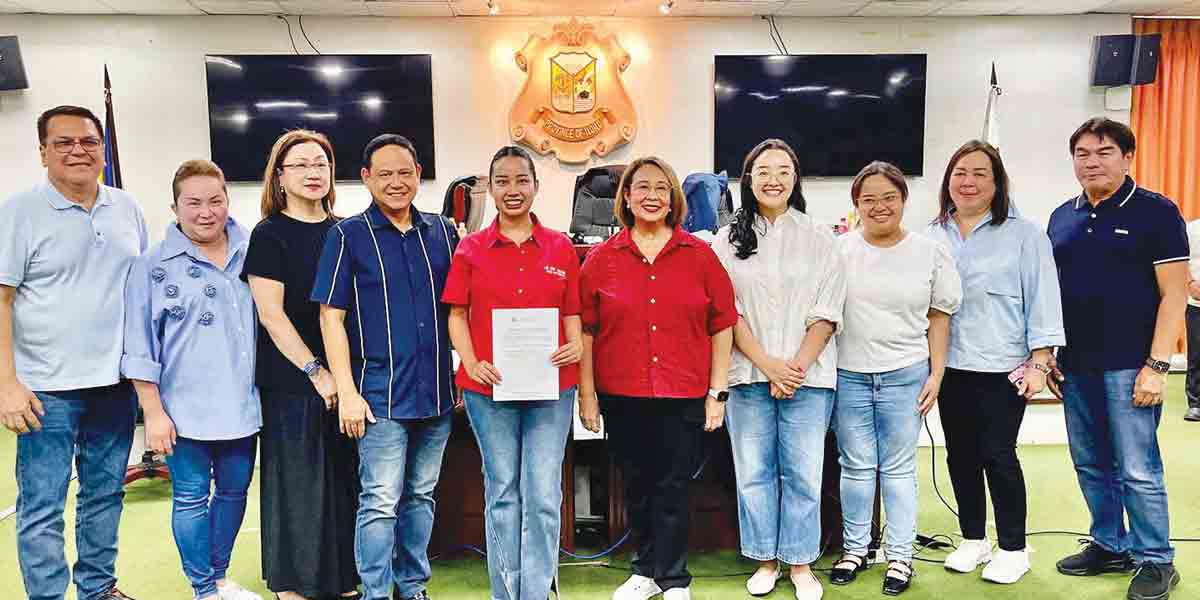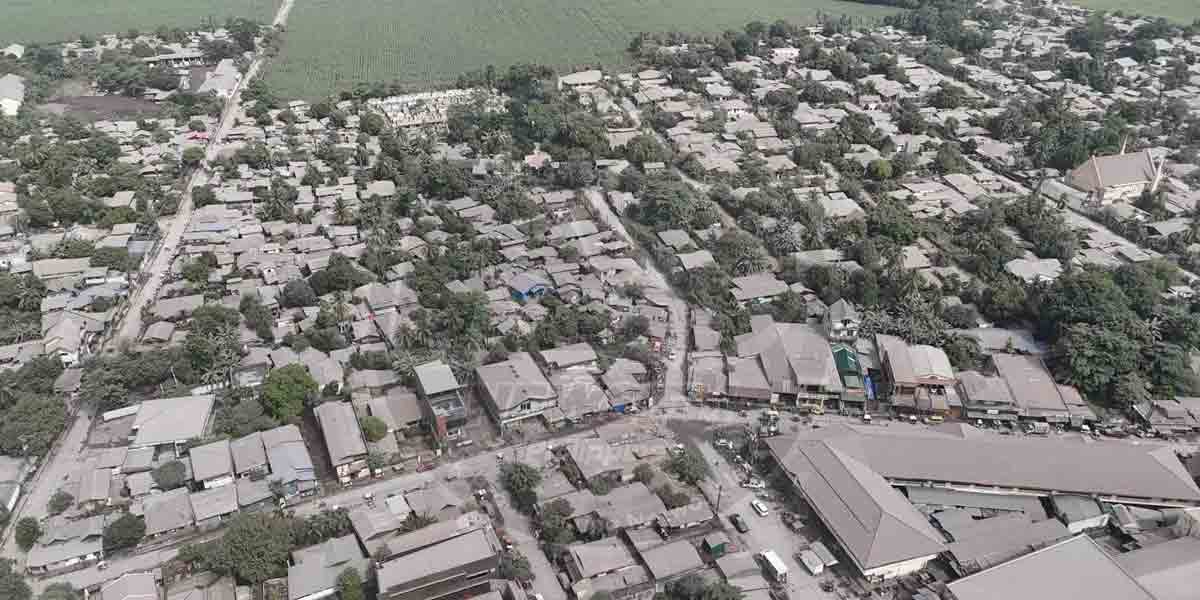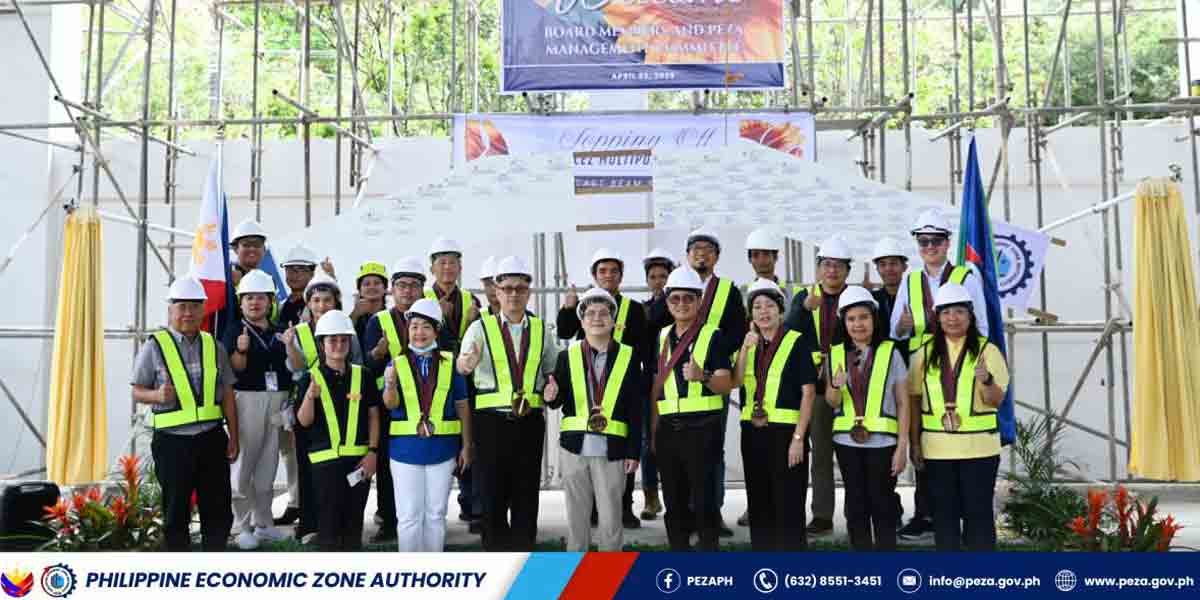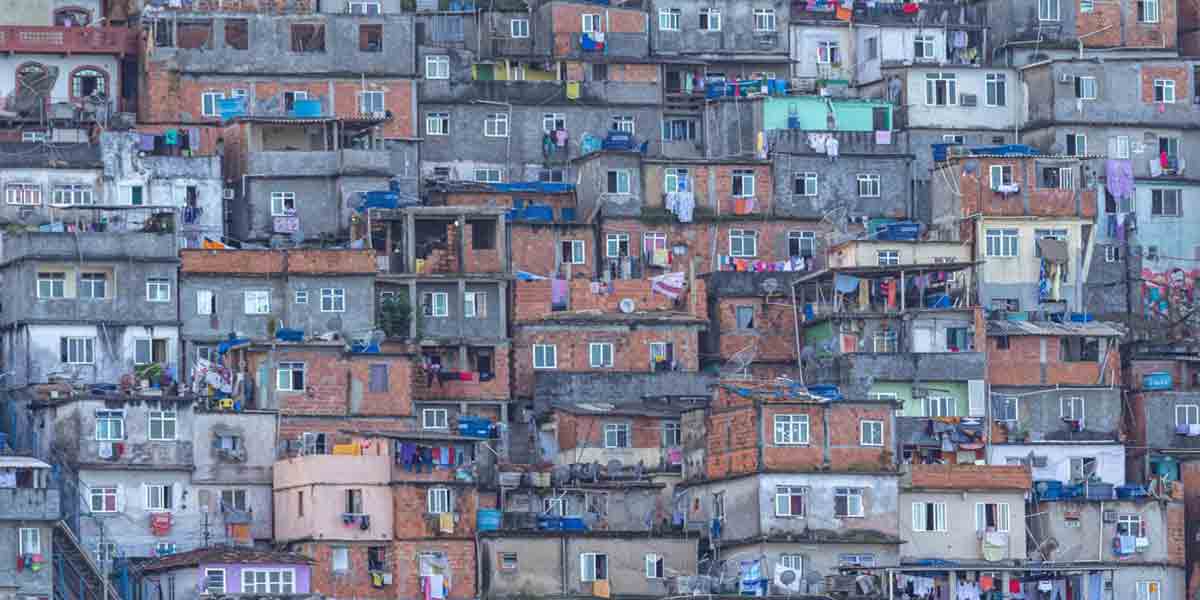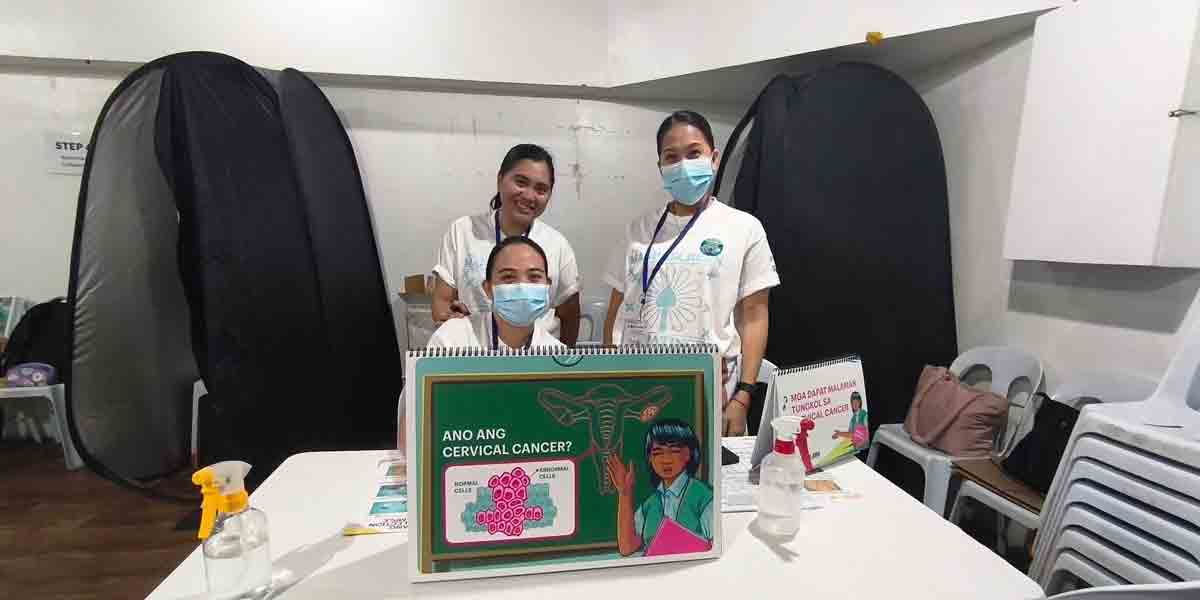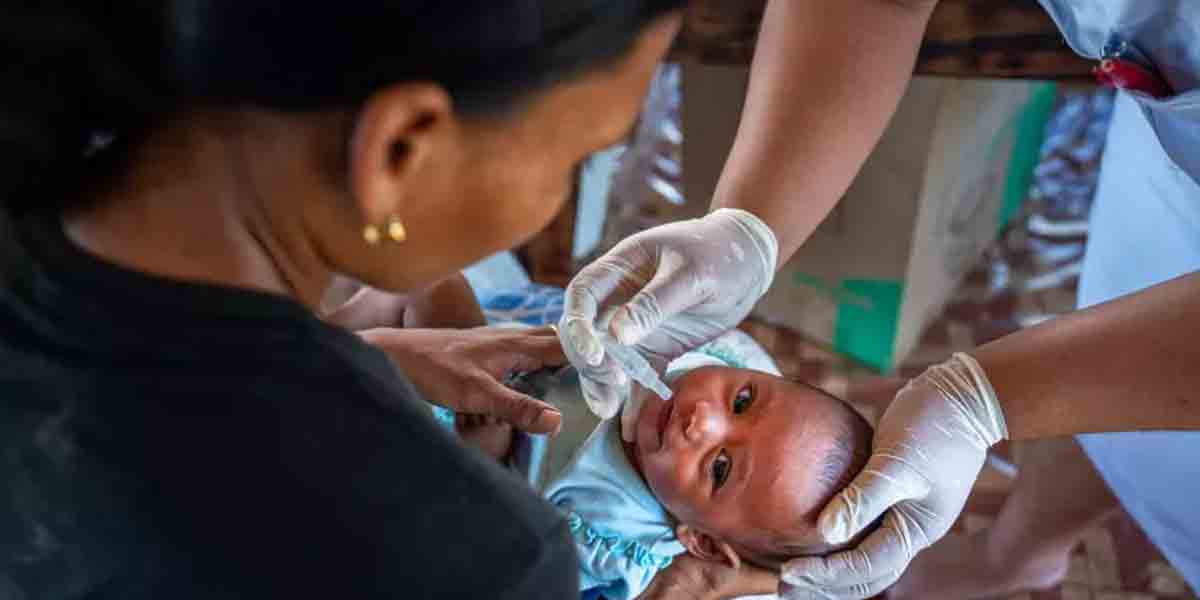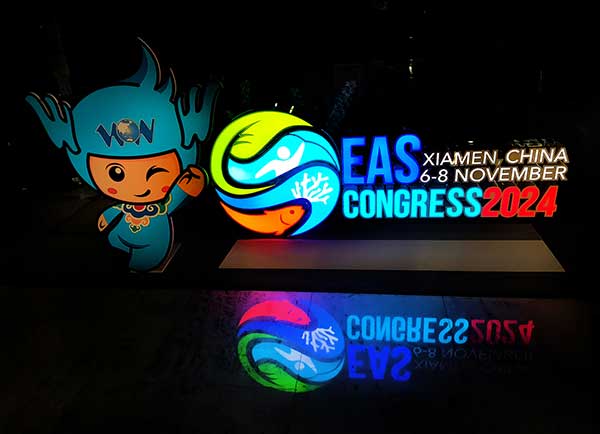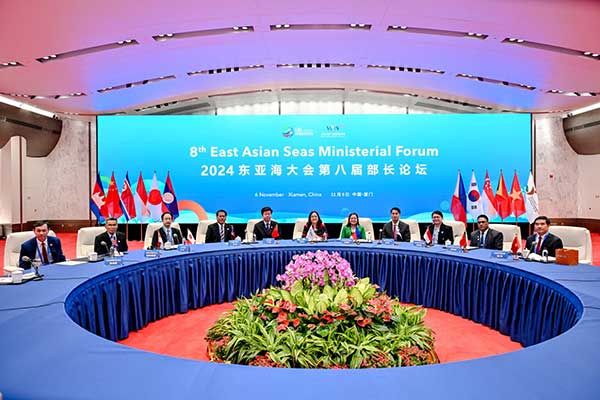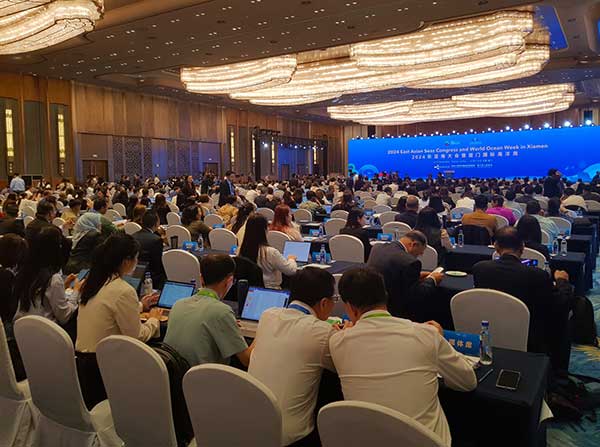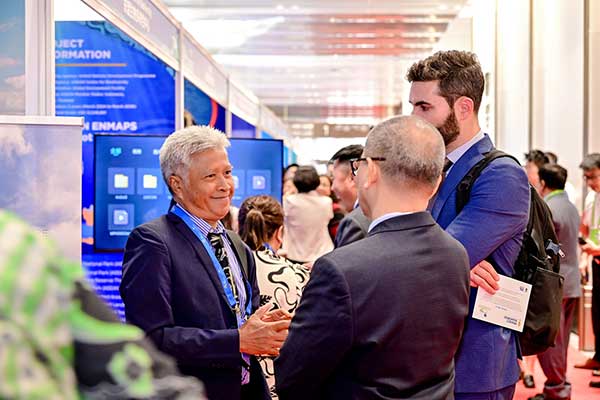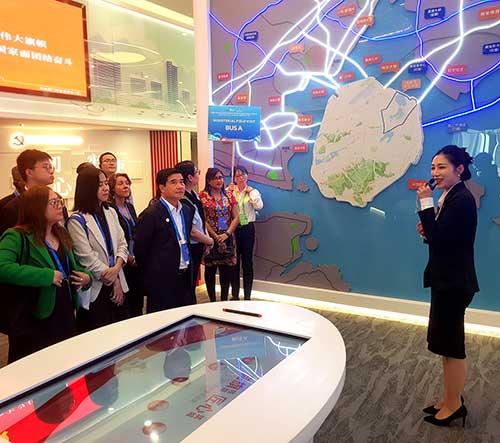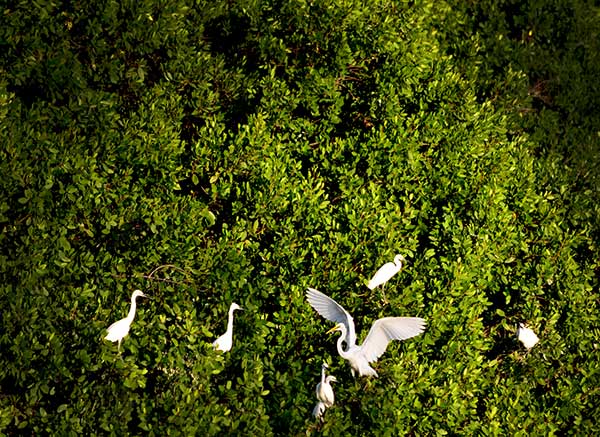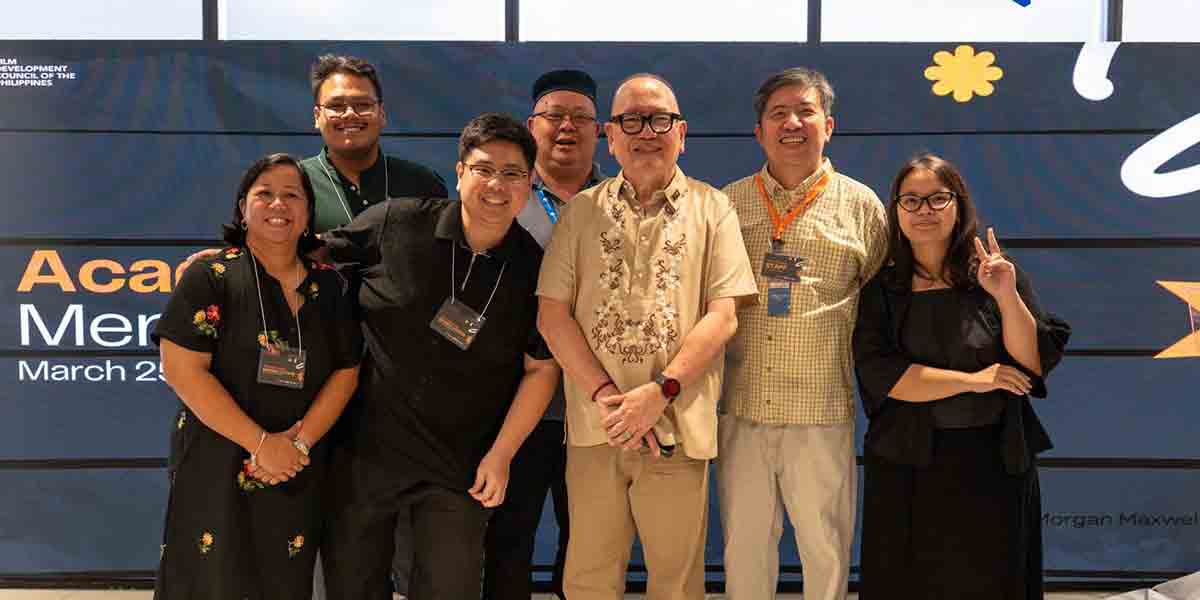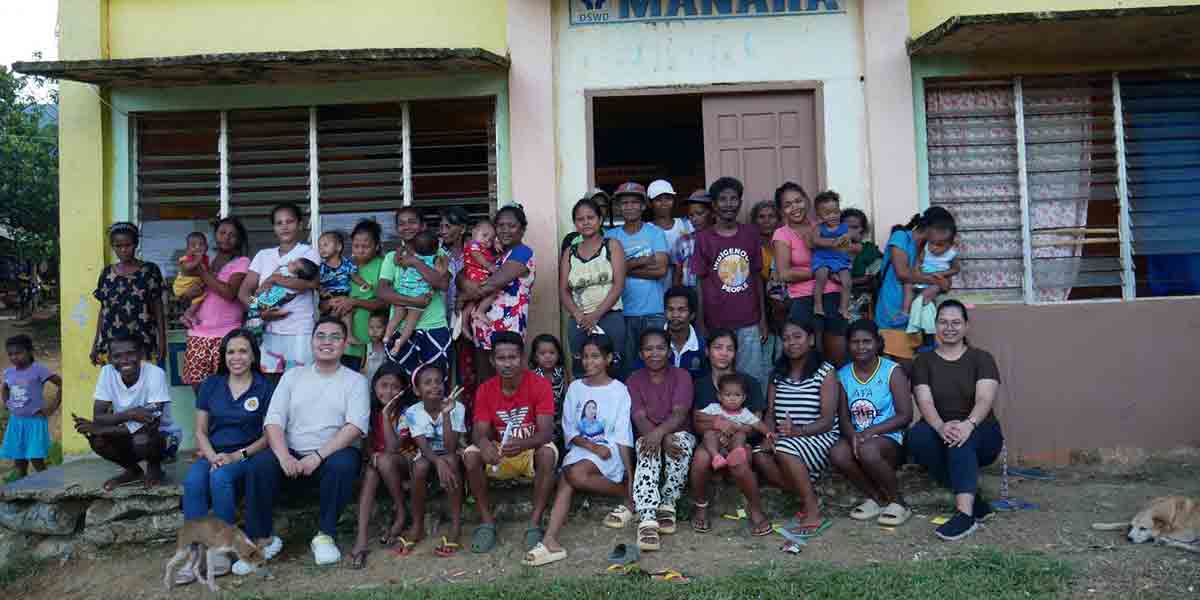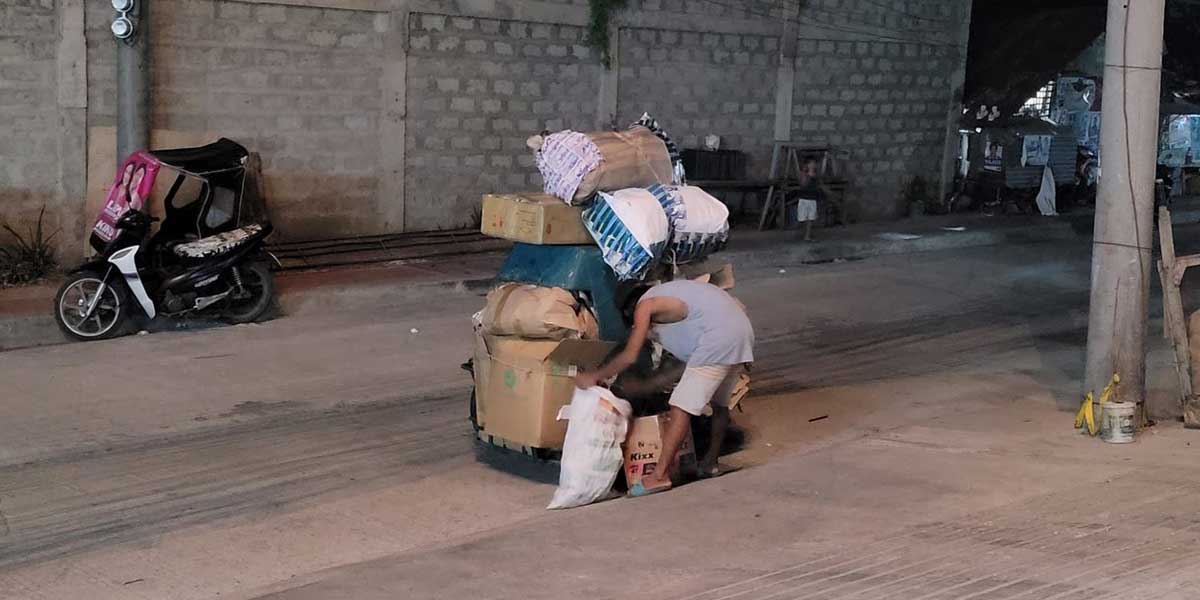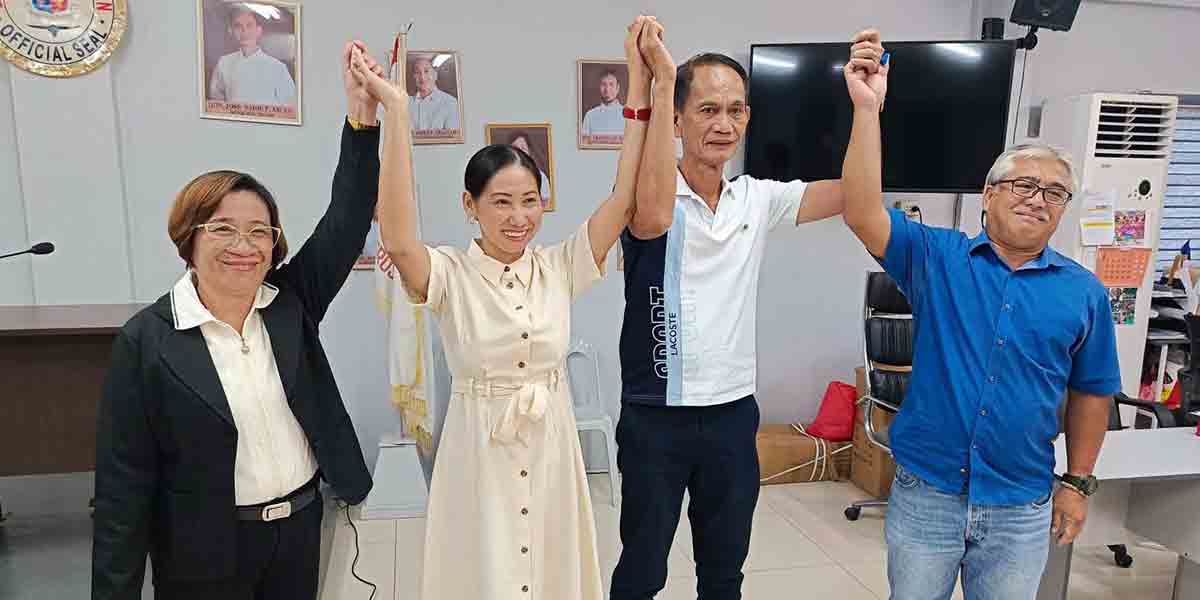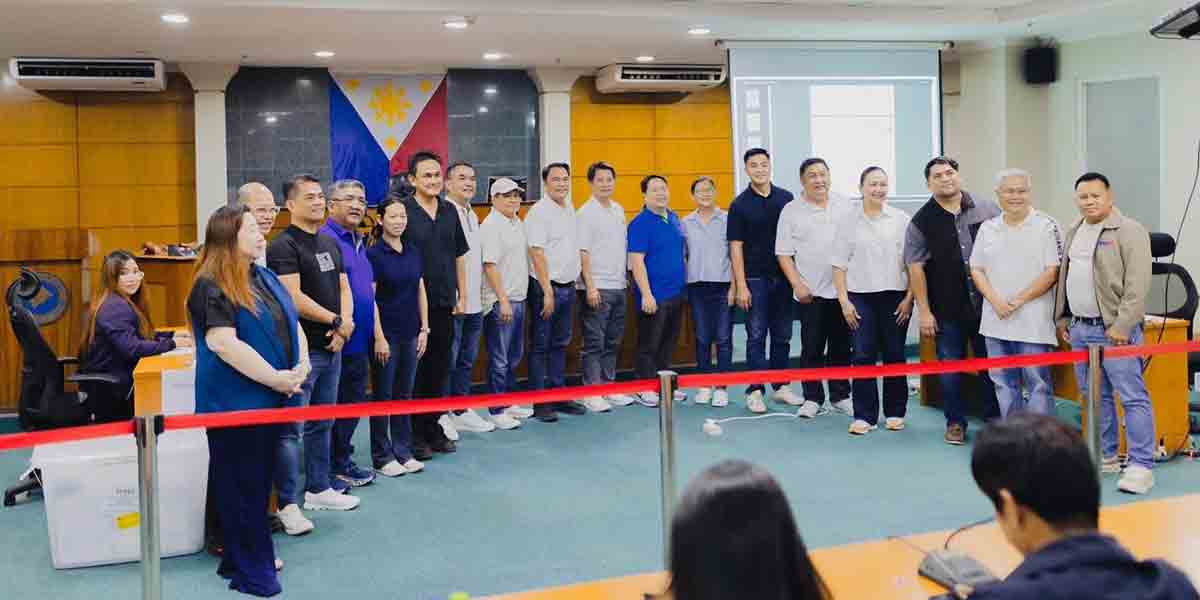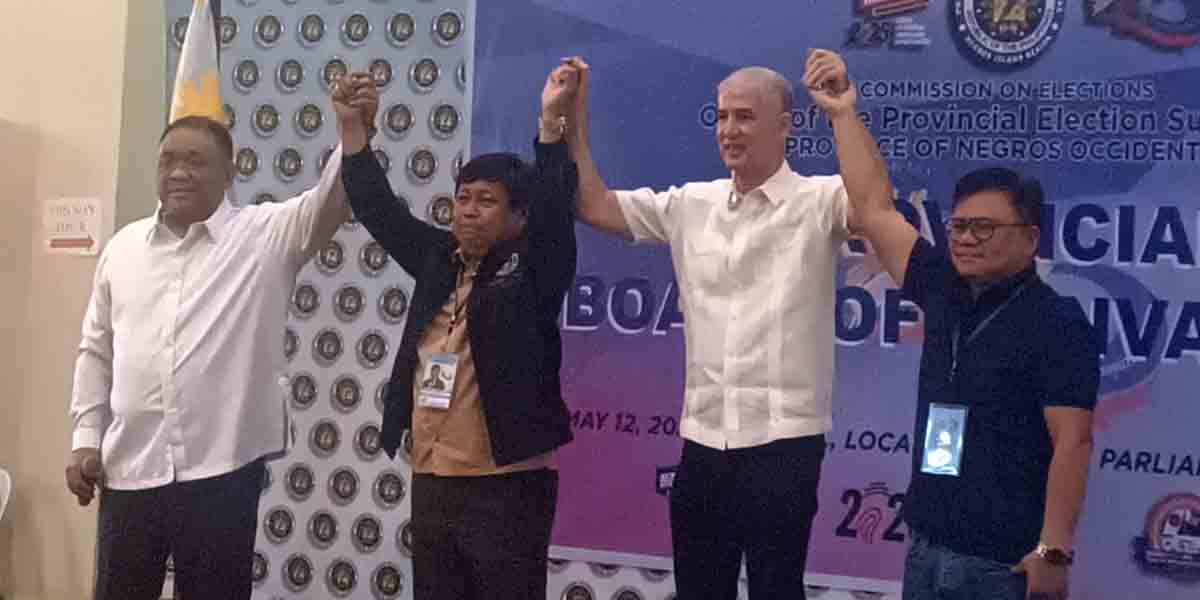XIAMEN, PEOPLE’S REPUBLIC OF CHINA – “Ask not what the ocean can do for you, but what YOU can all do for the ocean,” said Dr. Shenghui Li, China’s Youth Forum Delegate and the Deputy Director of the Department of Land Resource Management at the School of Management at Guangdong Ocean University.
Over 800 delegates from 20 countries attended the 8th East Asian Seas Congress (EASC) at the Xiamen International Convention Center from 6 to 8 November 2024. Co-organized by the Partnerships in Environmental Management for the Seas of East Asia (PEMSEA), the Ministry of Natural Resources of China and the Xiamen Municipal People’s Government, the three-day event featured a high-level forum, exhibits, a partnership night, field trips and nearly 30 learning sessions and smaller side events covering a diverse array of topics and issues.
The key highlight of the 8th East Asian Seas Congress was the 8th Ministerial Forum, where ministers and other high-level officials from 10 Asian nations reaffirmed their commitments to work as one in helping conserve and sustainably-develop the shared Seas of East Asia.
“We are deeply concerned with the findings of the World Ocean Assessment II, which reveals that the state of the ocean has not improved, with many ocean benefits being undermined by the impacts of biodiversity loss, pollution and most especially climate change,” said EAS Partnership Council Technical Session Chair Dr. Keita Furukawa. “These are adversely affecting many countries and communities.”
With country delegations led by Cambodia’s Paris Chuop, China’s Sun Shuxian, Indonesia’s Dasrul Chaniago, Japan’s Toru Ono, Lao PDR’s Chanthanet Boualapha, the Philippines’ Donalyn Minimo, the Republic of Korea’s Yoon Hyunsoo, Singapore’s Rena Lee, Timor-Leste’s Domingos da Conceicao dos Santos and Viet Nam’s Nguyen Duc Toan, the Ministerial Forum effectively addressed the region’s persistent and emerging challenges.
“We support lasting prosperity and will continue to promote the SDS-SEA. China pursues ecological preservation and economic development through the development of clean energy from our oceans, while advancing biotechnology and bio-finance to create opportunities and sustainable partnerships for blue development,” said Sun Shuxian from China’s Ministry of Natural Resources, one of the key organizers of the congress.
As a PEMSEA pilot-site in the 1990s and now a shining example of restorative development, Xiamen received an award for ‘Best Practice in Marine Ecological Conservation and Restoration.’
“Blue finance is essential for growth,” shared Dasrul Chaniago from Indonesia’s Ministry of Environment and Forestry. “We are the world’s largest archipelago, so embracing the Blue Economy can improve the welfare of our people. The average new annual investment required for the sustainable development of our marine, maritime and fisheries sectors is IDR 3.64 trillion, but we might eventually need many times that – as much as IDR1392 trillion.”
Held every three years, the EASC provides a multi-stakeholder platform for the public and private sectors to synergize efforts in conserving the rivers, coasts and seas of East Asia. First staged in 2003, the EASC 2024 was synergized with World Ocean Week in Xiamen (WOW), another globally recognized event attended by around 80,000 people yearly.
“The successful integration of these two significant events is expected to draw increased attention and participation from high-level international organizations, officials, scholars and experts,” said a WOW official. “This will not only enhance the focus on building blue partnerships with East Asian Seas countries, but also aim to achieve a synergistic effect where one plus one is greater than two.”
The premiere knowledge-exchange platform for East Asian nations to discuss the latest trends, innovations and issues affecting their rivers, oceans and coasts, EASC provided delegates with numerous opportunities to teach and learn at the same time.
Anchored on four key themes: Ocean Science, Policy and Practice, Global Challenges, Local Solutions, Innovation and Digitizing Ocean Action, plus Blue Financing and Investments, nearly 30 individual sessions tackled everything from marine plastic pollution and global leadership principles to oil spill response procedures and satellite-based remote sensing technology to monitor the health of our oceans.
“We encourage PEMSEA to prioritize stakeholder-driven dialogues like these. We are committed to continuing our journey with PEMSEA and all other regional partners,” said Domingos da Conceicao dos Santos, Secretary of State for Fisheries for Timor-Leste.
Ministers and delegates also enjoyed field trips to Wuyuan Bay and the Xiatanwei Mangrove Park, while a partnership night celebrated new and old alliances while honoring the ‘Humans of East Asian Seas’ – acknowledging 30 individuals for their transformational change for the East Asian region. Top awardee Masako Bannai Otsuka received a plaque from PEMSEA founder Dr. Chua Thia-Eng, while sharing a heartfelt message on behalf of all ‘Humans of East Asian Seas’ awardees.
“The theme of the congress was Blue Synergy for a Shared Future: One Sustainable and Resilient Ocean. We hope we inspired our participants to align their efforts so we can generate stronger and more unified regional impacts,” concluded PEMSEA Executive Director Aimee Gonzales. “We thank our co-organizers – the Ministry of Natural Resources of China, the Xiamen Municipal People’s Government, World Ocean Week in Xiamen, country and non-country partners, collaborators, sponsors, convenors plus all our delegates and participants for coming together and synergizing efforts to secure our shared future – sustainable and resilient oceans.” The next EASC will be staged in 2027.

